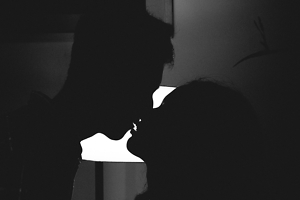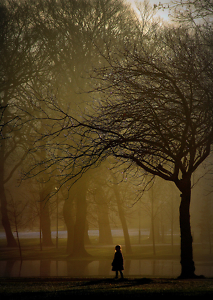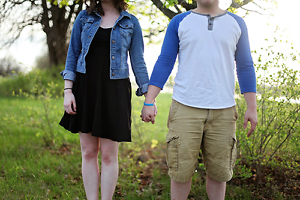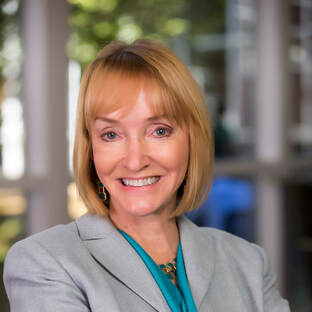Sex and Other Sins
I kept sinning despite my best efforts
Some of my earliest memories involve guilt. Coupled with the guilt comes the fear of hell. As soon as I was old enough to know I should be good, I knew I was not. Much of this fear and guilt came from my grandmother, whom I called Meme. I remember seeing the same fear, much intensified, on her face when, much later, she lay dying. She could not be consistently good either.

We should have found comfort in the cleansing blood of Jesus, and I’m sure we did. For a bit. However, no sooner would I have prayed for forgiveness of sins than I would find myself doing something else for which I needed forgiveness. Looking back, I see that my sins were small ones, if they can be delineated, but each one loomed enormous at the time, and for a long time after.
I was raised to be a believer. A good Christian girl, with all this entailed. This meant mostly avoidance, abstinence — of alcohol, cussing, sex before marriage. Even thoughts of sex were a sin. Of course, I didn’t know what sex was, not for a long, long time. But I felt a naughty tingle of sinful pleasure when I’d see couples kissing on a television screen or, on rare occasions, in the flesh. There was something stimulating about the taboos, so that even as I strove to resist them, they drew me in. More so, perhaps, than if I’d never been warned.
My playmates consisted mainly of two types: my cousins and the kids of the men who worked for Daddy selling Fuller brushes. Daddy was a field manager by the time I was 5, something that made me feel very superior. The kids I remember best from this period were two from the second group, Mike and LaDonna. They were both younger than me, so I can’t blame them for leading me astray. No, it was clearly the other way around. I was only about a year older than Mike, but a year seemed an eternity back then. I wanted to try the smooching thing with someone, and he seemed the most likely candidate. Slyly I suggested playing house, with LaDonna as our child and me as the housewife waiting for her husband (Mike) to come home of an evening. When he did, I wanted to meet him at the door and then get rushed to a bed to smooch.
My imagination went no further than this, but somehow even then I knew the naughty sensations would be intensified in a bed. Mike was not an eager participant, and in the flood of emotions I recall, shame and guilt outweighed excitement and pleasure. We abandoned the game.
Later — or was it earlier? I can’t be certain — the boy next door offered to show me his if I’d show him mine. I was shocked, but not displeased. We pulled our pants down quickly and up again before I got a good look, still stunned at the prospect. The next day I suggested we do it again.
 “Do what?” David asked innocently, and I told him.
“Do what?” David asked innocently, and I told him.
His mother stepped out from behind a sheet she was hanging on the laundry line to dry, and I flushed scarlet with shame. I never brought it up again.
My silence and shame didn’t stop my imagination, but it did put an end to my initiation of sexual exploration. Every time I saw David’s mother, I cringed. What if she told Mama? For, as disapproving as the gaze David’s mother turned on me, I knew Mama’s reaction would be infinitely worse.
Mama didn’t talk about sex with me — not then, not ever — but still she managed to convey with no room for doubt the things that were off-limits. Off-limits was even worse than unladylike, which was bad enough. There were ways to sit or stand, for instance. And cousins could absolutely never be viewed as boyfriends or anything remotely similar, for some shameful reason which I could sense but not understand.
Once, when the rain peppered down hard enough to sting our skin, my cousins, Jesse Ray and Wildie, and I were playing cards on the bed in the little trailer where some of the family slept at the lake. We had pulled the sheet over our heads, and the cards were out of sight under the sheet. Mama came into the room and screamed at us as if I’d been caught doing something vile. And I cringed in shame as if I had.
Later, when we played hide-and-seek and Wildie wanted to hide in the same spot as me, pressing his hard, tanned body close to mine, I fled to another spot as if I’d been shot, without knowing why. Knowing only that on this road lay destruction. Still, I kept sinning despite my best efforts. Or was it that I didn’t really try, figuring death and hellfire were a long, long way off?
Not that sexual thoughts were my only source of guilt, not by a long shot. I also remember envy. One day LaDonna came to play with me while her dad and Daddy talked business; she carried a new, shiny black patent leather purse (probably plastic, now that I look back at it) with a zipper and beautiful hot pink trim. How I lusted after that pocketbook! Because she was several years my junior, I cleverly negotiated a trade with her, in which I emerged with the beautiful purse and all she got was some of my old junky toys that I cared nothing about. With the prize in my possession, I could never enjoy carrying it. One glimpse, and my stomach churned with sudden nausea, the knowledge paramount that I’d tricked and cheated her out of such a glorious treasure. Clearly, I was on my way to damnation.

When the preacher at the little church in Bell City, Brother Pope, lifted his thin frame onto the tips of his shiny black shoes, leaned into the podium, and pointed a finger at the congregation as he spoke of sin and damnation, I knew he was pointing at me. Surely none of the grownups around me, decked out in their hats and Sunday best, ever committed a single sin. Only I was flawed inside and out.
My little lace-trimmed socks worked their way inside my Mary Jane shoes and under my feet when I walked. Avoiding Brother Pope’s eyes, I bent over to pull them out and up, to little avail. How I envied the girls from the orphanage across the street in their shoes with no socks, and with the t-strap slung back so that their shoes resembled the pumps the grown-up ladies wore.
“Ple-ease,” I’d begged Mama to let me wear my straps that way.
“You’re too young. Absolutely not.”
“I’m not any younger than Clara Bell,” I’d pointed out. “And she always wears hers like that. Plus no socks!”
“She doesn’t have a mother to tell her better. It’s never a good idea to compare yourself to those poor little orphans.”
After church, Mr. Murdock, the man who ran the orphanage, would tease me. “Don’t you want to go home with us?”
I’d hide behind Mama’s skirt, clinging to her stocking-clad legs. “No!”
Though I admired and, yes, envied these girls, I knew I didn’t want to live there. If I ever stayed with them just once, I reasoned, I would be stuck there for life. I wondered if this was the pit these kids fell into. Did they once have parents like mine?
As many questions as I had, I rarely voiced them. Neither Mama nor Daddy encouraged them, and their answers invariably left me feeling either stupid or ashamed. And usually no better informed. Also, I didn’t want them to know my envy, for they would undoubtedly associate it with a lack of gratitude for what I had, still another sin.
 It’s funny, now that Mama and Daddy are nearing 80, that I’m bombarding them with questions — questions about their past and their memories of prior generations, as well as about my childhood. And they answer willingly, calling up memories long forgotten and asking each other to fill in the gaps. Was my earlier impression correct? Were they really too busy, or too preoccupied, too unsure of themselves in the role of parent to be bothered to answer back when I was a child? Or might they have answered gladly? Strange, how the ripples can make all the difference.
It’s funny, now that Mama and Daddy are nearing 80, that I’m bombarding them with questions — questions about their past and their memories of prior generations, as well as about my childhood. And they answer willingly, calling up memories long forgotten and asking each other to fill in the gaps. Was my earlier impression correct? Were they really too busy, or too preoccupied, too unsure of themselves in the role of parent to be bothered to answer back when I was a child? Or might they have answered gladly? Strange, how the ripples can make all the difference.
When I look back and see the girl that was me — she was me, wasn’t she? — I can hardly believe I am that same person. The girl people call Debbie, or Debbie Jean, or sometimes Debbie Jeaner or just Jeaner, the girl they said was precocious because she had a vast vocabulary for one so young, though her Great Uncle Dewey would say, “That one’s got more age on her than she shows.”
With the exception of Meme, people didn’t often call me out as a sinner. No, mostly they were complimentary of Debbie Jean. Many of those memories aren’t so much mine as things I’ve been told about myself, about her. Which one was the real Debbie? The girl who didn’t want anyone to know the extent of her sin and shame, or the other one? That girl was self-assured, certain she was going places when she grew up, would perhaps achieve greatness.
This was before the world told her — or showed her — she was too short, or too smart, too talkative, too uncoordinated at sports, too long-nosed, and so on. She learned to be less assertive, to shrink into the background, to be apologetic for her shortcomings. To be me. Still, I remain puzzled at exactly how the differing identities merged. When did it happen? I suspect that the person I am now is a blend of the two sets: the things I remember and the ones I’ve been told.
I wonder if everyone feels this way, if it is normal to reflect on one’s life and see versions of oneself which feel unrelated to the self who finally emerged … or is still a work in progress. It is with some relief that, when I look back and see the girls I once was, I realize that if I wasn’t as clever as one of them thought herself, neither was I as wicked as another believed.

Copyright © 2021 by Debra Coleman Jeter. All rights reserved. Debra Coleman Jeter, a professor emerita at Vanderbilt University, has published three novels, a memoir, and a textbook. Her work has also been published in Working Woman, New Woman, Self, Home Life, Savvy, Christian Woman, and American Baby.


